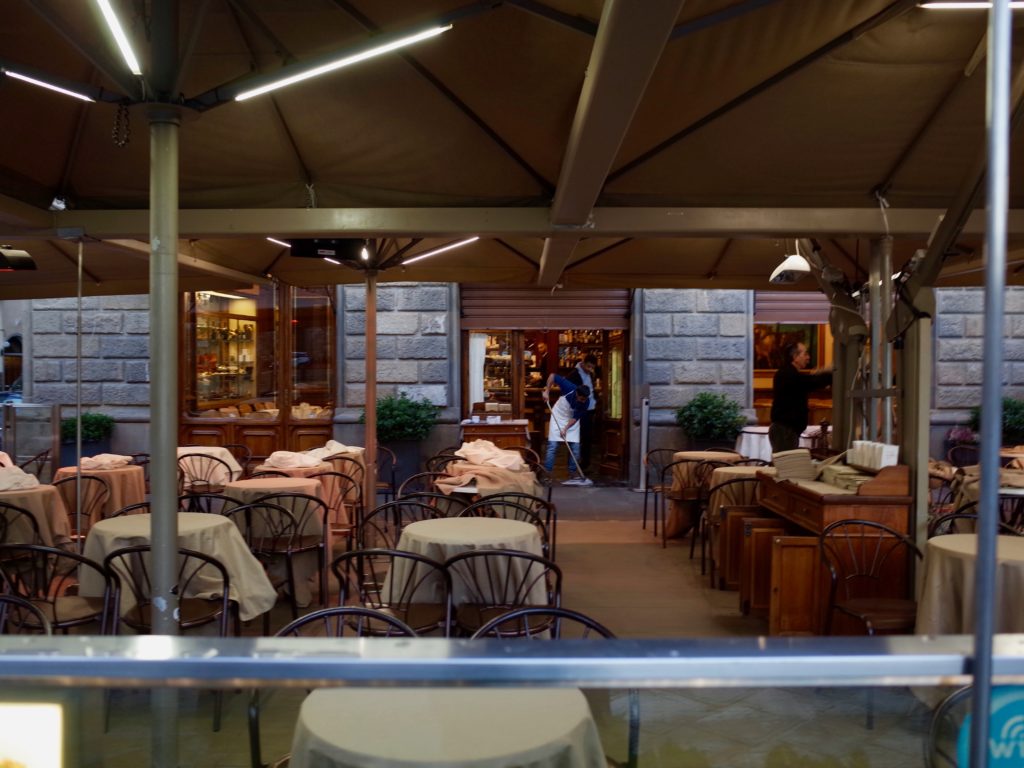The Absurd Italian Referendum

29.11.16 Last weekend, I was at one of my favourite olive and salami merchants in Berlin, talking to the Neapolitan owner, who looked at me rather sharply when I told him I was not sure how to vote in the upcoming Italian constitutional referendum on 4 December (yes, dear readers, sono anche italiano; you can read The Needle pages in Italian here).
Absurdly, although most Italians don’t yet know how they are going to vote, in my experience once they have decided their position, they act as if the other side is betraying something sacred. My Neapolitan interlocutor is really vehement in his hatred of Matteo Renzi: “Anything he is for, I’m against”, he tells me. In fact, almost every Italian I know feels the same way.
But, unlike him, not everyone has read the text of the referendum. This is yet another absurdity of the referendum: most Italians simply consider it a confidence vote on Renzi. According to one poll, only one in ten Italians know the details of what the referendum is about.
What is it about then? The text is a package of a number of constitutional changes. The most important is the elimination of ‘perfect bicameralism’, a system which means laws bounce back and forth between the House (Camera) and the Senate (Senato) until they can agree. The referendum proposes to turn the Senate into a smaller assembly of the regions and to centre power ‘autocratically’ in the House. Critics says this would put too much power in the hands of the House and the executive, and destroy a valuable check, and meanwhile there would be confusion about competence (debate over reform of a certain Title V). Former Italian PM and Eurocrat Mario Monti, for example, has said he will vote no, for reasons including that the assembly of regions would be appointed, not elected, promoting cronyism. Those for ‘Sì’ argue that the two houses needlessly duplicate each others’ work, and perfect bicameralism is an absurd and expensive system that debilitates decision making and makes Italian governments unstable (because the Senate can now pass non-confidence votes). In addition, the referendum proposes to abolish the National Council of Labour (CNEL: Consiglio Nazionale dell’Economia del Lavoro), which ‘sì’ voters says is a redundant organisation that has never relevantly intervened in Italian political life. The referendum also guarantees that petitions achieving a certain number of signatures (150 000) would get a hearing in the House. In short, the proposals are diverse but bundled together, with the idea of empowering the House––as it is empowered in many other European democracies––in the name of political stability.
But the text of the referendum is not what everyone is thinking about when they vote, and there is a good reason for this: Renzi has tied the referendum to his continuation in Italian political life. I must say that I resent this: I feel, as someone who is worried about the other alternatives in Italian federal politics––not just Berlusconi, but also the populist Grillo of the Five Star Movement, with his anti-European agenda––bullied into voting ‘Sì’ for reasons quite apart from the text of the referendum. There are good arguments for and against the proposed constitutional changes, but they might not be why many people end up voting yes or no. The circumstances surrounding the referendum put many Italians in an absurd decision-making situation.
Meanwhile, the international press is approaching the referendum as if it’s already a referendum on Europe. There are two big reasons for this.
The first is the news cycle. First you had Brexit, then you had Trump, now something else has to happen. Populism spreading like wildfire is in the air, and didn’t you know things come in threes? Or that Italy is the great barometer of all things (or so Bloomberg tells us)? Or that the whole European project is at risk if Italy votes no (you can read this alarmism in the business pages of the FT––obviously business wants Italian government to pass business-friendly laws more quickly)?
The second is that, because Renzi has stupidly tied his tenure to the referendum’s success, its failure could open the door to Grillo and his anti-European pack, who, if they were in power, might push for a referendum on the Euro (but not on the EU).
But we are not yet at a referendum on the Euro. Much of the international press seem to forget the text of the referendum would not yet trigger some big shake-up like Brexit. A ‘No’ vote on the referendum would simply ask that the constitutional arrangement remain the same as it was before. If Renzi loses, the result will be uncertainty. And uncertainty is precisely what Italy doesn’t need right now with its banking crisis. The real question is how a caretaker government, after Renzi, might do a better job at promoting stability than the climate of Renzi’s referendum. Meanwhile, there are many more steps to be taken before one could say that this weekend’s referendum––which seems likely to go to the No vote––was the big step forward in the breakup of the common currency.
For now, I just hope that Italians vote 1. having actually read the text of what has been asked them, and 2. that, even if they hate Renzi, they ask whether they would like who might succeed him, and if that person would deal differently with problems in Italian economic and political life that would remain even if Renzi were gone, 3. that if and when the ‘No’ vote comes, we don’t call it another ‘Brexit’ or ‘Trump’ moment, because we’re not there (yet) in Italy.
